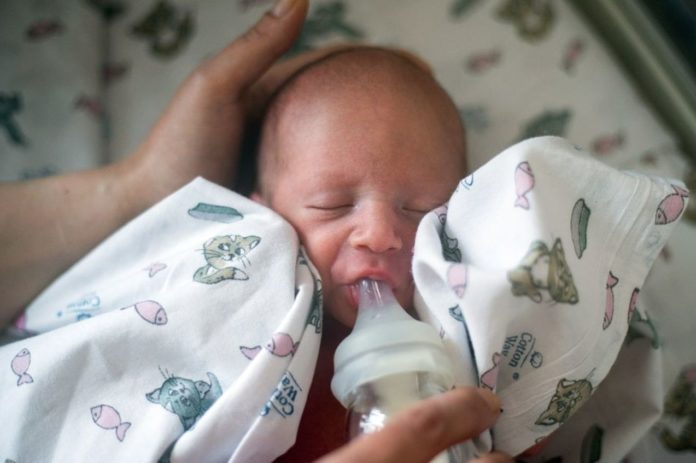Human milk oligosaccharides (HMOs), which are short strings of sugar molecules prevalent in mother’s milk, can help prevent GBS infections in human cells and tissues, as well as in mice, according to the findings, which will be presented at ACS Fall 2021. HMOs may one day be able to replace antibiotics in the treatment of illnesses in newborns and adults, according to the researchers.
Blood infections, meningitis, and stillbirth in neonates are all caused by bacteria known as group B Streptococcus (GBS). Antibiotics may often treat or prevent GBS infections, but the bacteria are becoming increasingly resistant.
According to the Centers for Disease Control and Prevention in the United States, roughly 2,000 newborns are infected with GBS each year, with 4-6 percent of them dying. During labour and delivery, microorganisms are frequently passed from mother to infant. Within birth, a pregnant mother who tests positive for GBS is routinely given intravenous antibiotics to help avoid early-onset infections, which usually arise during the first week of life.
Late-onset infections (which occur between one week and three months after birth) are more common in formula-fed newborns than in breastfed children, suggesting that components in human milk may help protect against GBS. If this is the case, sugars may be able to take the place of antibiotics, which, in addition to destroying beneficial bacteria, are becoming less effective as antibiotic resistance spreads.
The researchers looked at how GBS infection of placental immune cells (called macrophages) and the gestational membrane was affected by a combination of HMOs from multiple mothers.
They also examined whether HMOs could prevent a GBS infection from spreading through the reproductive tract of pregnant mice.
The researchers created an artificial two-species microbiome with GBS and the beneficial Streptococcus salivarius species growing in a tissue culture plate separated by a semi-permeable membrane to figure out which HMOs and other oligosaccharides had these antimicrobial effects and why.
The team then added plant-derived oligosaccharides termed galacto-oligosaccharides (GOS), which are routinely used in newborn formula. GBS inhibited the growth of “good” bacteria in the absence of sugar, however GOS aided the growth of this beneficial species.
Surprisingly, the initial HMOs they tested in the system had no effect, but the authors believe that one or more of the roughly 200 sugars found in human milk will likely exhibit activity in the artificial microbiome experiment.
According to the researchers, there are two reasons why HMOs help treat and prevent GBS infection: They function as an anti-adhesive, preventing infections from adhering to tissue surfaces and producing biofilms, and they may also function as a prebiotic, promoting the growth of beneficial bacteria.
“We found that HMOs were able to completely inhibit bacterial growth in both the macrophages and the membranes, so we very quickly turned to look at a mouse model,” according to the authors.
“In five different parts of the reproductive tract, we saw significantly decreased GBS infection with HMO treatment.”
Additionally, “if we could learn more about how they work, it’s possible that we could treat different types of infections with mixtures of HMOs, and maybe one day this could be a substitute for antibiotics in adults, as well as babies.”
Image Credit: GEtty
